Today Current Affairs: 21st May 2022 for UPSC IAS exams, State PSC exams, SSC CGL, State SSC, RRB, Railways, Banking Exam & IBPS, etc
Table of Contents
Respiratory Syncytial Virus:
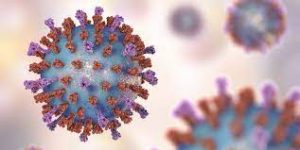
Lower respiratory infection attributable to respiratory syncytial virus (RSV) was responsible for more than 1,00,000 deaths in children under five worldwide in 2019, according to a new estimate published in The Lancet
- The study is the first to examine RSV disease burden in narrow age brackets.
- According to the report the incidence rate in India is 53 per 1,000 children per year (5.3%) and there were an approximate 61,86, 500 episodes of RSV-associated acute lower respiratory infection in children below five years.
- Respiratory syncytial virus (RSV) is also called human respiratory syncytial virus (hRSV) and human orthopneumovirus.
- It is a common, contagious virus that causes infections of the respiratory tract.
- It is a negative-sense, single-stranded RNA virus, and its name is derived from the large cells known as syncytia that form when infected cells fuse.
- RSV is the most common cause of acute lower respiratory infection in young children.
- Globally, only 26% RSV-associated deaths occur in a hospital. This is particularly apparent in low- and middle-income countries.
New Development Bank (NDB) New Regional Office:
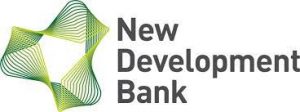
New Development Bank (NDB) is setting up a regional office in Gujarat, India for funding and monitoring infrastructure projects in that country and Bangladesh.
- NDB is a multilateral development bank operated by the BRICS states (Brazil, Russia, India, China and South Africa).
- It was agreed to by BRICS leaders at the 5th BRICS summit held in Durban, South Africa in 2013.
- It was launched in 2015, at the 6th BRICS Summit at Fortaleza, Brazil.
- The bank is set up to foster greater financial and development cooperation among the five emerging markets.
- Headquartered in Shanghai, China.
- In 2018, the NDB received observer status in the United Nations General Assembly, establishing a firm basis for active and fruitful cooperation with the UN.
- Unlike the World Bank, which assigns votes based on capital share, in the New Development Bank each participant country will be assigned one vote, and none of the countries will have veto power.
International Migration Review Forum:

The First International Migration Review Forum (IMRF) is being held under the UN General Assembly (UNGA) in New York, USA. It started on May 17th and will end on May 20th.
- In the “Global Compact for Safe, Orderly and Regular Migration (GCM)”, it was decided that the IMRF will act as a platform to discuss the progress on implementation of all aspects of the GCM and its intersection with the UN SDGs.
- IMRF provides an opportunity for the international community to identify the challenges faced by migrants.
- It will also recognize the contributions made by migrants to society.
- IMRF will be held every four years, with the 2022 edition being the first one. Each edition of the IMRF will result in the adoption of the Progress Declaration.
- IMRF will be chaired by the President of the UN General Assembly (UNGA).
- Global Compact for Safe, Orderly, and Regular Migration (GCM), adopted in 2018, is the first inter-governmentally negotiated agreement prepared under the UN, which covers all aspects of migration.
- GCM recognizes and respects the sovereign right of a nation to determine who will enter and stay in their territory.
- But the GCM also advocates the need to protect the human rights of all migrants.
World Economic Situation And Prospects (WESP) Report:
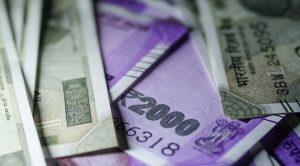
According to the World Economic Situation and Prospects (WESP) report that was released by the United Nations on 18th May 2022, the global economy this year is expected to grow by only 3.1 per cent.
- The earlier prediction in January was 4.0 per cent but the rate was slashed mainly due to the war in Ukraine.
- This report has been published by the Department of Economic and Social Affairs (DESA) of the UN.
- The forecast has revealed that the Ukraine conflict and the COVID-19 pandemic have increased commodity and food prices, thus increasing the inflationary pressures.
- According to this report, global inflation this year is set to reach 6.7 per cent.
- The high inflation rate in the developing and least developed countries is reducing the real income of the households.
- This can be seen mostly in those countries where there is more poverty along with constrained wage growth and there is less fiscal support to soften the impact of higher food prices.
- Also, the United States Federal Reserve’s monetary tightening will also affect the developing and the least developed nations.
- The growth prospects downgrade is affecting all countries across the world including major economies like the United States, the European Union, China, etc as well as other major economies.
- Higher food and energy prices are mostly affecting the developing economies that import a lot of commodities, especially the African countries.
- The WESP report has highlighted that the war between Russia and Ukraine is impacting every region across the globe.
- Due to this war, energy prices have increased drastically.
- The European Union faced a blunt of this effect as around a quarter of Europe’s energy consumption is in the form of natural gas and oil imports from Russia.
- The sudden halt of energy outflows from Russia has led to an increase in energy prices.
National Endangered Species Day:

The National Endangered Species Day is observed across the globe annually on every third Friday.
- This year the day is being observed on 20th May 2022.
- The aim of this day is to generate awareness among the people of the planet about endangered species and the ways they can be protected.
- This year’s observance is the 16th National Endangered Species
- Those insects, animals, micro-organisms, and plants that are facing the risk of extinction are known as endangered species.
- These species can still be found across the planet but they might not survive for long if proper steps are not taken for their protection.
- Some endangered species are alligator, bald eagle, polar bear, snow leopards, grey wolf, Asiatic lion, etc.
- Theme:“Recovering key species for ecosystem restoration” is the theme for this year’s celebration of this day.
Shri Ram Nath Kovind Visit To Saint Vincent And The Grenadines:
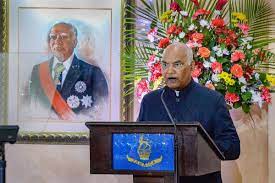
After completing the state visit to Jamaica, President Ram Nath Kovind arrived in Kingstown, the capital city of Saint Vincent and Grenadines.
- Saint Vincent and the Grenadines is an island country in the Caribbean.
- It is located in the southeast Windward Islands of the Lesser Antilles. Kingstown is the capital and main port.
- This first-ever Head of State visit to Saint Vincent and Grenadines shows India’s commitment to work with Small Island developing countries.
- Apart from signing of MoUs, President Kovind will address the Parliament of Saint Vincent and Grenadines.
- Vincent & Grenadines and India enjoy cordial relations and interact actively in various international forums including the United Nations and Commonwealth
- Persons of Indian Origins had come to the island nation in the 19th century as indentured labourers.
- The descendants of those persons now form an important part of the local community.
What Is Puri Heritage Corridor Project?
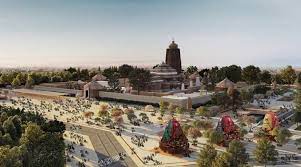
According to ASI, the Odisha state government was constructing the Puri Heritage Corridor project without proper licence in protected and controlled areas of the monument.
- A PIL has been filed in court against the proposal, which has prompted worries about its influence on the structural safety of the Puri temple.
- Conceived in 2016, the Project aims to transform the holy town of Puri into an international place of heritage.
- The project includes redevelopment of Puri lake and Musa river revival plan.
- Puri Jagannath Temple is an important Vaishnavite temple dedicated to Jagannath, a form of Sri Krishna in Puri in Odisha.
- The temple is believed to have been constructed in the 12th century by King Anatavarman Chodaganga Deva of the Eastern Ganga Dynasty.
- Jagannath Puri temple is called ‘Yamanika Tirtha’ where, according to the Hindu beliefs, the power of ‘Yama’, the god of death has been nullified in Puri due to the presence of Lord Jagannath.
- The Puri temple is famous for its annual Ratha Yatra, or chariot festival, in which the three principal deities are pulled on huge and elaborately decorated temple cars.
GST Council’s Proposals:
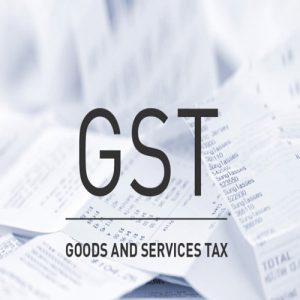
The Supreme Court, in a judgment championing the importance of “cooperative federalism”, held that Union and State legislatures have “equal, simultaneous and unique powers” to make laws on Goods and Services Tax (GST) and the recommendations of the GST Council are not binding on them.
- The apex court’s decision came while confirming a Gujarat High Court ruling that the Centre cannot levy Integrated Goods and Services Tax (IGST) on ocean freight from Indian importers.
- The court emphasised that Article 246A (which gives the States power to make laws with respect to GST) of the Constitution treat the Union and the States as “equal units”.
- It confers a simultaneous power (on Union and States) for enacting laws on GST.
- Article 279A, in constituting the GST Council, envisions that neither the Centre nor the States are actually dependent on the other.
- The judgment said that though the Centre may have a larger share of power in certain instances to prevent chaos and provide security, the States still wielded power.
- After all, the court said, “Indian federalism is a dialogue between cooperative and un-cooperative federalism where the federal units are at liberty to use different means of persuasion, ranging from collaboration to contestation”.
China – Tibet Issue:
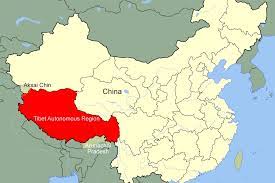
U.S. Special Coordinator on Tibet Uzra Zeya met with the ‘Sikyong’ or leader of the self-styled Central Tibetan Administration Penpa Tsering and other officials and representatives of the Tibetan community on a public visit to Dharamshala (Himachal Pradesh).
- The visit is being seen as a strong message from the Indian government to China as well, which protests what it calls “meddling” in Tibet, as the visit was facilitated by New Delhi.
- Tibet is a region on the Tibetan Plateau in Asia, spanning about 2.4 million km2 – nearly a quarter of China’s territory.
- It is the traditional homeland of the Tibetan people as well as some other ethnic groups.
- The People’s Republic of China asserts that Tibet has been a part of China since the Mongol-led Yuan dynasty.
- In 1951 Tibetan leaders were forced to sign a treaty dictated by China.
- The treaty, known as the “Seventeen Point Agreement”, professes to guarantee Tibetan autonomy and to respect the Buddhist religion but also allows the establishment of Chinese civil and military headquarters at Lhasa (Tibet’s capital).
- However, the Tibetan people – including Dalai Lama – consider it invalid and as having been signed under duress.
- This has often been described by the Tibetan people as a cultural genocide.




